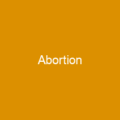The October–November 2020 Polish protests, commonly known as the Women’s Strike, are the ongoing anti-government demonstrations and protests in Poland. They began on 22 October 2020, in reaction to a ruling of the Constitutional Tribunal, mainly consisting of judges appointed by the ruling party Law and Justice. The ruling made almost all cases of abortion illegal, including those cases in which the foetus had a severe and permanent disability, or an incurable and life-threatening disease.
About October 2020 Polish protests in brief

The Polish parliament passed the Law on Family Planning forbidding abortion, except if the pregnancy poses a risk to the mother’s life, it is the result of a crime, or there is a foetal impairment. In 1997, the Constitutional tribunal ruled abortion on social grounds unconstitutional. In 2016, a citizen initiative was launched by anti-abortion movements such as Stop Aborcji to tighten restrictions on abortions. It collected 830,000 signatures, forcing the Polish Parliament to discuss it. The bill advanced further in parliamentary discussions, and the All-Poland Women’s strike launched a protest movement branded \”Black Protest\” that attracted international coverage. The PiS government let the bill die in committee. The anti- abortion groups then started to oppose the constitutionality of the existing abortion law. In 2018, 119 members of the newly elected Sejm, coming from the PiS, Confederation, and Polish Coalition parliamentary groups, submitted a referral to the Tribunal on whether or not abortions of pregnancies unrelated to rape or not threatening the mother’s life, which they call ‘eugenic’ are constitutional. In an 11–2 decision announced on 22 Oct 2020 and published on the next day, the Tribunal ruled unconstitutional the provision of the 1993 Act permitting abortion when the fo fetus is predicted to have a severe disability or incurable illness. The ruling found it violated the Constitutional protection of human dignity. The EU Commission has now referred the case to the EU Court of justice.
You want to know more about October 2020 Polish protests?
This page is based on the article October 2020 Polish protests published in Wikipedia (as of Dec. 04, 2020) and was automatically summarized using artificial intelligence.







